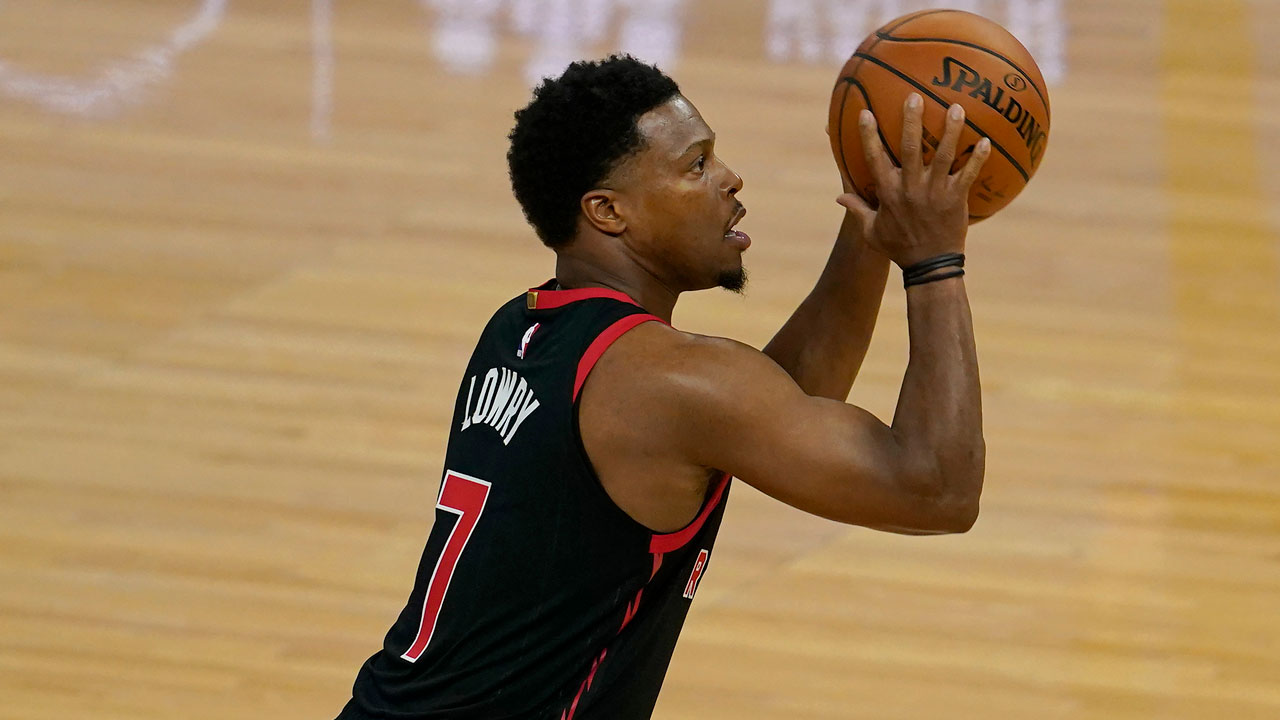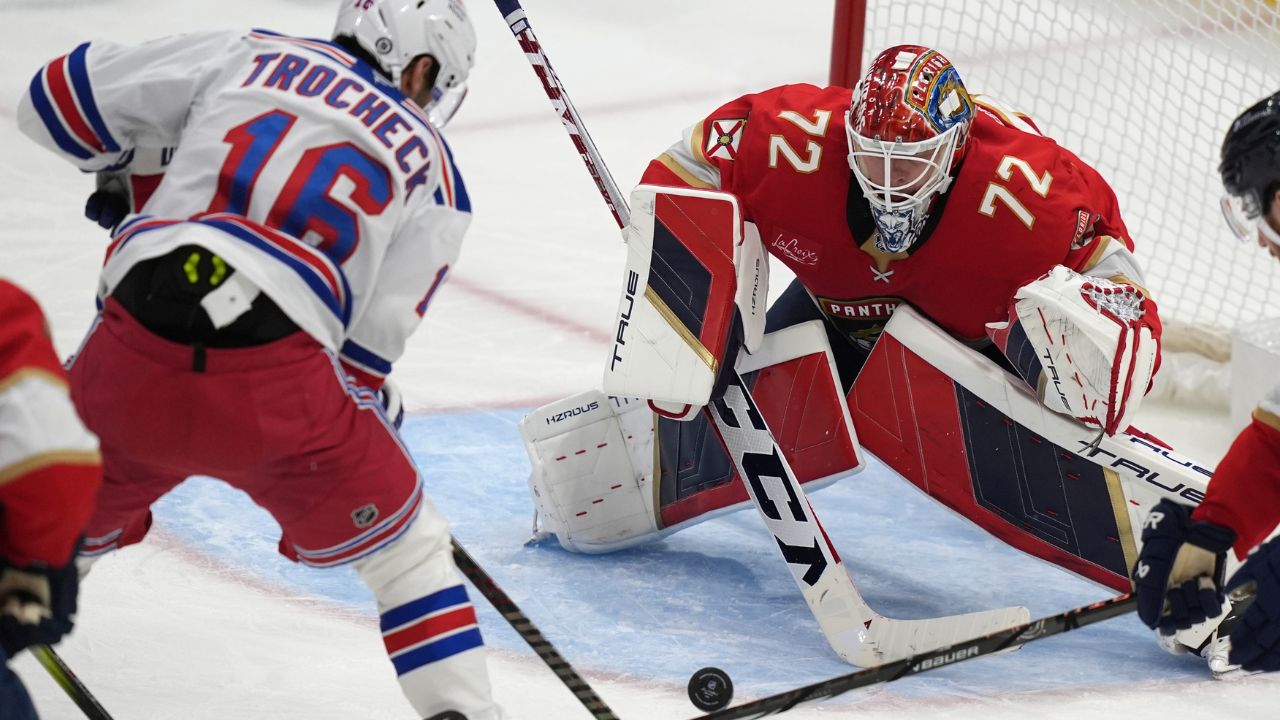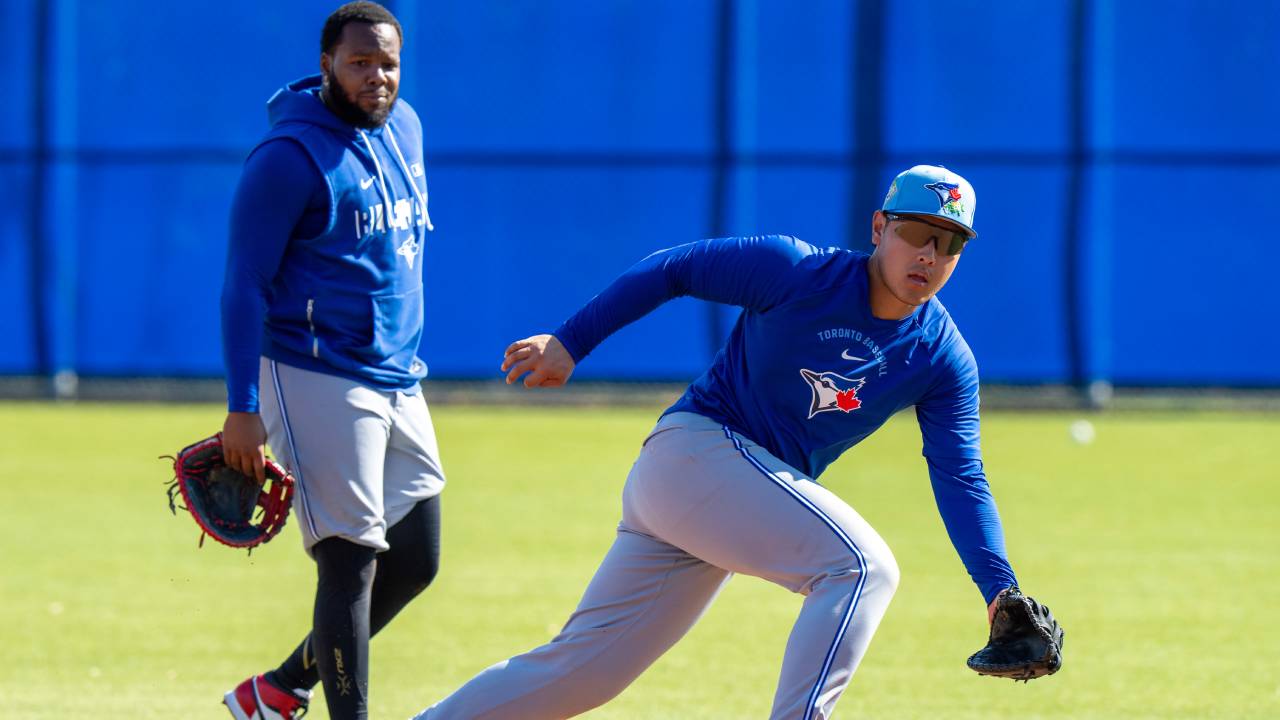
The Toronto Raptors had the best player available at the NBA trade deadline, so they kept him.
And they have one of the best executives in the league, but for how long?
For the moment the Raptors remain Kyle Lowry’s team and president Masai Ujiri’s organization.
It’s hard to shake the sense that change could be coming, and it could be drastic, fabric-altering stuff given the cornerstones that Ujiri and Lowry represent.
But for now, consistency and continuity.
The 3 p.m. ET deadline came and went Thursday and Kyle Lowry’s nine-year relationship with the franchise remains intact.
Like any meaningful relationship that’s lasted that long, it’s changed over time and it’s been tested by more than one crisis brought on by forces external and internal alike.
But once again they’ve been weathered successfully and Lowry will continue drawing charges, making steals, banging down threes, arguing calls and being a veteran mentor until at least the end of the 2020-21 season.
At that point, there is the possibility — maybe even a probability — of Toronto re-signing Lowry to one more deal, just as they have the previous two times he was a free agent.
But also the opportunity to find some value and an agreeable landing spot for him as part of a sign-and-trade deal in the off-season will be discussed by all parties as well.
“We’ll talk about them. I think we’ll talk about them when the time comes at the end of the season,” said Ujiri. “But I think we all know the respect and the sentiment about Kyle and this ball club, and what he’s done not only for the city, the team, the country, the league. I think he signifies plenty. So I think we will, as we’ve always said with our team, we will visit that at the end of the season.”
As for the Raptors’ other pending free agent?
Ujiri says his future will be determined then, too.
“We’ll visit this at the end of the season at some point,” he said, a variation on the answer he’s given for nearly a year now.
But he did elaborate to explain that the lack of clarity about his future — which is to say, the fact that he hasn’t taken up what is essentially a standing offer of a contract extension that would keep him in Toronto past his eighth season — had no impact on how he approached a day in which he did trade Norman Powell, the second-longest serving player on the team, and came close to trading Lowry, the team’s heartbeat for the past nine seasons.
“Hey, this is my job, I’m a Raptor, love this team, love everything about this organization and we will visit (his contract) at the end of the season, and I think that’s fair on every side,” he said. “…Going into a day like this I (don’t) think about what I’m doing or myself, that’s not the way these things work, it’s not the way I was raised, it’s not the way I look at things at all.
“Raptors, it doesn’t matter what happens, Raptors is inside here (points to heart), it’s in the blood. This is what we live, this is what we do. I love doing it, I love it to death and today, it’s part of the spirit, it’s part of everything we are. You lose some, you win some, we are going to gain some sometimes, sometimes we are going to gain ground, sometimes we are going to lose ground, but at the end of the day I know this organization is a winning organization and it’s a winning culture we want to build.”
There is no question that there was an awareness on both sides that Thursday could be the day Lowry and the Raptors parted ways. Lowry didn’t hold court with the media as expansively and openly as he did for 25 minutes after the Raptors’ win over Denver on Wednesday night because it’s how he most prefers to spend his time.
He knew that he might have played his last game in Toronto and wanted to acknowledge that, albeit hampered by the possibility that it might not be his last game with the franchise.
And Lowry being traded was never something that had to happen. Lowry understands how good he has things with the Raptors — he was never pushing to leave; there was never going to be a split. Leverage wasn’t going to come into play. Instead, it was communication and cooperation.
And even the Raptors’ recent nine-game losing streak was not a factor.
Looking past a predictable short-term blip on the heels of a COVID-29 outbreak and in the midst of a compressed, dislocated season in Tampa was not going to be a problem. Toronto has had too much success for too long to believe that their formula was no longer working, that they couldn’t turn things around this year and beyond once things stabilized.
All of that was part of the context for how the day was approached. Powell was traded because in adding Gary Trent Jr. from Portland the Raptors get the rights to a 22-year-old with three years of NBA experience who has hit 40 per cent of his three-point attempts. He’ll be a restricted free agent this summer and the Raptors will be able to go over the salary cap to sign him if necessary and will be able to do so at a fraction of what the more polished and veteran Powell will command in free agency. That veteran wing Rodney Hood is part of the deal is a bonus.
The Raptors might not be better now with Powell on the move — although the hope is that Trent’s defence might close the gap — but they are in a position to see if Trent can grow into a bigger role with additional salary cap flexibility, an added benefit.
Similarly, while trading Lowry was an option, there was never a thought that Ujiri was going to let the Raptors’ most accomplished player — and arguably, at age 35, still their best player — move along without what he deemed a stellar return.
There were moments early in the day that Lowry was convinced he was going to Philadelphia, though that could have been posturing to shake a juicier offer from Miami — by far Lowry’s preferred destination. The Sixers, in the end, didn’t have an intriguing enough pair of prospects in Tyrese Maxey and Matisse Thybulle that they were willing to move along with at least one first round pick and maybe two. They added to their playmaking depth by trading for Thunder veteran George Hill for a fraction of what Lowry would have required.
And Miami wouldn’t include second-year wing Tyler Herro — they need to keep productive talent on affordable rookie deals — in a package that would otherwise have been built around Canadian big man Kelly Olynyk, rookie big Precious Achiuwa and cap fodder. They wouldn’t budge and at the buzzer pulled the trigger on a deal that yielded former All-Star Victor Oladipo for spare parts and no future obligations. And just before the deadline passed the Los Angeles Lakers were still pitching, but didn’t want to include second-year wing Talen Horton-Tucker, the kind of affordable young talent they need to keep around.
These weren’t ‘Godfather’ offers; the Raptors could comfortably refuse them and they did, content to fight the rest of the season with Lowry as they try to recover from 11th place.
The Raptors were expecting more for Lowry because they know what he can do and what he brings.
“In the heat of the moment I was surprised [the offers]weren’t better because, to be honest, I’ve viewed him as somebody that can go out and put a stamp on what you can do this year,” said Ujiri. “… I’ve lived it, I’ve seen it… I know what the guy does. I know who he is. And that’s the truth. So, yeah, we’re going to (be) skewed in some kind of way and I’m biased in many ways with the players we have and I hope I’m pardoned that if I valued him too much, but that’s what I believe in today. So we move on from it. [The trade deadline] is done.”
The Lowry-Ujiri story isn’t though. There is at least one more chapter to be written. But ink won’t get to paper on that until the end of the season at least.




